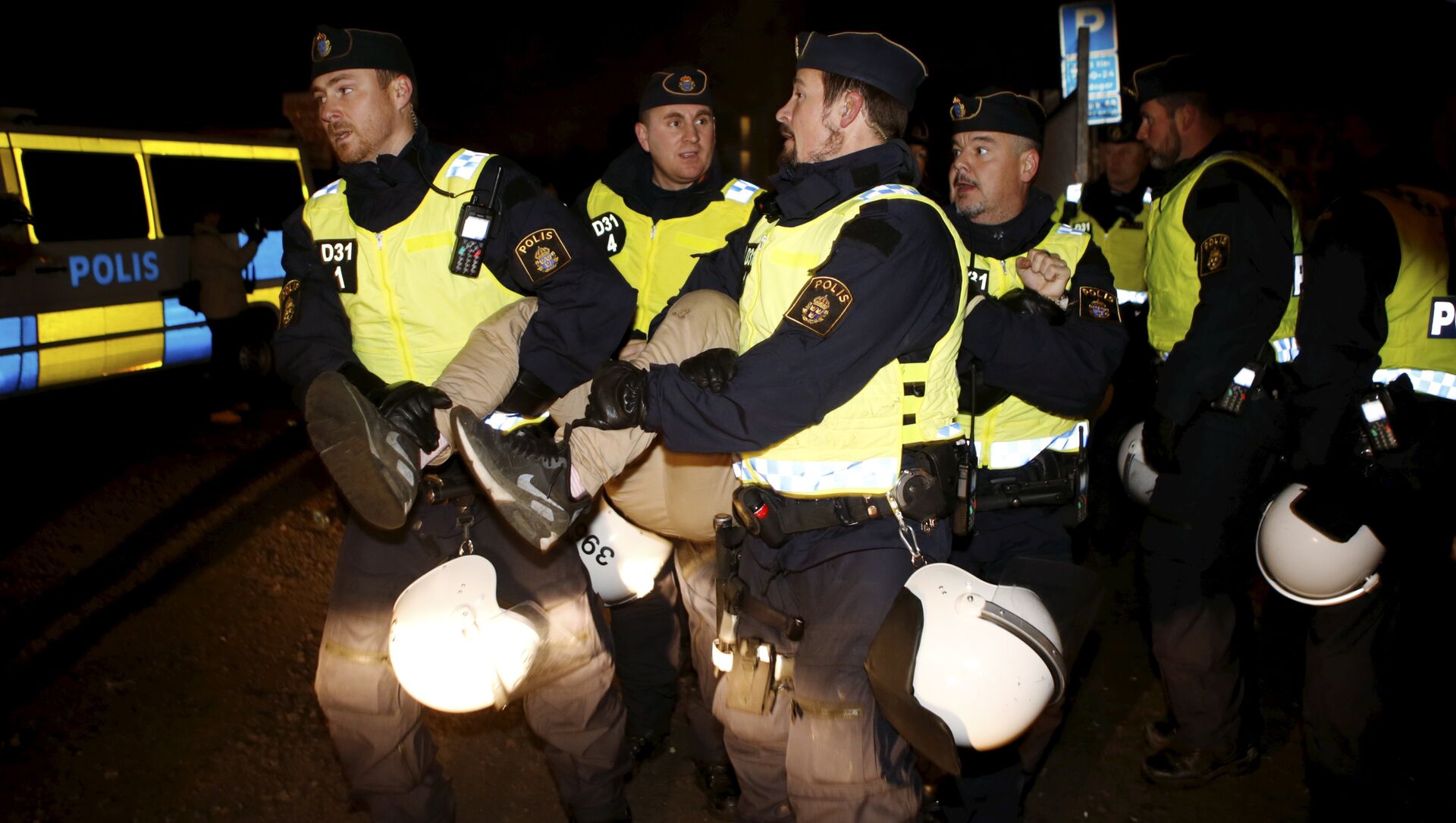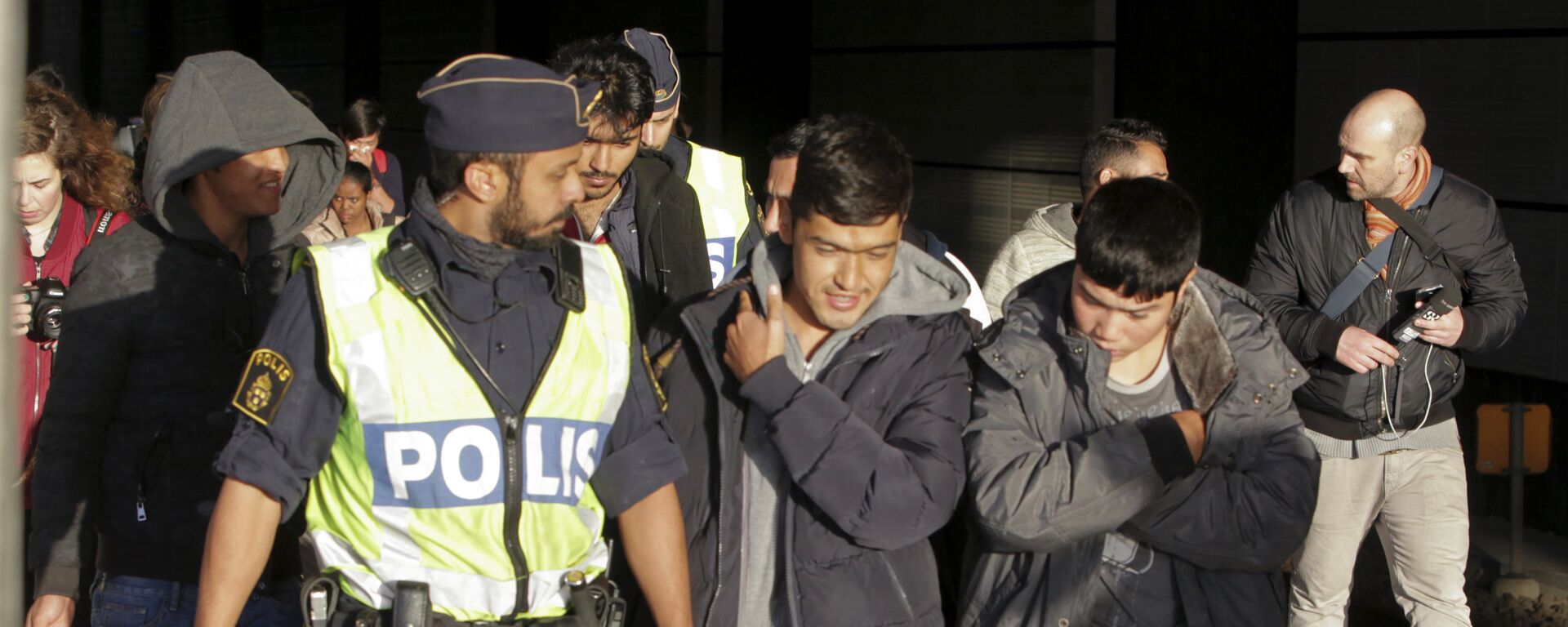'Immigration Created Barbarism': Swedish Politician Blasts Gang Wars, Organised Crime

© AFP 2023 / TT NEWS AGENCY / DRAGO PRVULOVIC
Subscribe
While immigration and its consequences have of late become a watershed issue in Swedish politics, resulting in yet another divide between the right and the left, the debate has been fuelled by reports of immigrants' over-reresentation in crime, as well as a key admission of poor integration by outgoing PM Stefan Löfven, after years of denial.
What was promised as an investment, profit and a flourishing multiculturalism has instead led to more unemployment, segregation and a thriving gang culture, a high profile Sweden Democrat has claimed.
In a searing opinion piece titled “Immigration Created Barbarism”, Adam Marttinen of the parliamentary Justice Committee accused mass immigration of contributing to gangland violence and organised crime that swept the country.
With an open swipe against former Swedish Prime Minister and Moderate Party leader Fredrik Reinfeldt, who once notoriously claimed that “Only barbarism is genuinely Swedish, all further development has come from abroad”, Marttinen claimed that Reinfeldt-led governments laid the foundation for the barbarism of gang wars that dominate the news cycle.
“For decades, Sweden has been the country in Europe that has had the strongest immigration in terms of our population. For the Sweden Democrats, it has always been a matter of course that an extremely liberal immigration policy creates extreme outcomes in other areas of society,” Marttinen wrote in his opinion piece in the news outlet Nyheter Idag. “What was promised as an investment, profit and a flourishing multiculturalism has instead resulted in what the Sweden Democrats warned against: more unemployment, segregation and a thriving gang culture."
So far this year, Sweden has seen 192 shootings with 26 deaths related to gang conflicts, Marttinen emphasised, citing the recent report by the Swedish Crime Prevention Agency (Brå) that stressed immigrants' over-representation in crime. According to Marttinen, this is an aftershock of Sweden's decade-long immigration policy.
“When we sum up the year with children being shot and killed, a policeman who has been shot dead, bombs exploding in residential areas, shootings in malls in broad daylight, we can state that the nightmare of community development has crossed all conceivable boundaries,” Marttinen summarised.
To reverse the trend, he called for a “total revaluation of Swedish policy” in immigration and criminal justice.
According to Marttinen, this means that Sweden must “never again accept any form of immigration that risks leading to crime” and must “be prepared to lock up thousands of individuals for a much longer period of time” than offered to gang criminals today.
“Ultimately, it is he who understands what caused this barbarism of gang wars who holds the key to lasting change,” Marttinen concluded.
Since embracing mass immigration in the 1980s, Sweden has changed from one of Europe's most homogeneous nations to one of its most ethnically diverse in a matter of several decades. According to Tobias Hübinette, a researcher of race and multiculturalism at Karlstad University and a self-described anti-racist, one third (33.5 percent) of all Swedish residents have some kind of foreign background.
In recent years, immigration has become an important watershed issue in Swedish politics, with right-of-the-centre parties favouring restrictions and limitations, at risk of being accused of racism, white privilege and chauvinism.
In recent months, however, debate has been shifted toward the role of immigrants in heavy crime in light of numerous reports, fuelled by outgoing Prime Minister Stefan Löfven's admission of poor integration in a turning-point speech.


